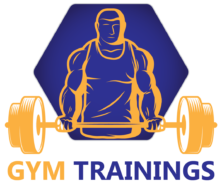Sports stagnation is a state where we notice that no matter how much we train we do not continue to advance, let’s see how to avoid it and overcome this barrier!

There are many causes that can favor not being able to enjoy a real progression in our training, causing us to fall into a frame of sports stagnation.
This can happen for many situations, always doing the same routine, using the same loads, falling into a box of overtraining, or under-training, lack of sleep, lack of motivation and more.
Let’s see, it’s normal to feel down or not really wanting to train from one day to the next, and this usually happens because motivation and progress are never linear.
But the problem arises when this situation is prolonged in time, and it is before reaching this point that we have to react.
Sports stagnation
The challenge is not to think about training even more to get out of a situation of sports stagnation, but the real challenge is to start looking for, and to identify, the causes that really lead us to fall under this picture.
This is not always easy when we form habits, making our way of training or carrying out a certain situation always the same, even if it is not correct.
To identify the problem and start looking for solutions to sports stagnation, we must know how much we have progressed with our training in recent times.
In this way we will know if we have really stagnated due to a sporting issue, or we have only gotten too close to our maximum potential, to our “genetic limitations”.
Now, the real sports stagnation, generally not suffered by veteran practitioners but by beginners, and usually appears just a few months after having started training.
Causes of sports stagnation and how to overcome it
To move forward with the concept of finding the true root cause, I will introduce you then, what are the 3 main causes of sports stagnation, in order to find a real solution to this situation.
Not having an appropriate training program
I know that it is sometimes difficult to advance in a training program and achieve a critical evaluation of the progress and results.
But without a properly established program or routine, don’t be surprised if you can’t move forward as you wish.
The concept of “instinctive” or no-workout training is the antithesis of serious gyms.
According to the followers of these theories, we must listen to our body and not schedule the training sessions or their content: « What is the secret of muscle growth then? The feeling.
Get advice correctly when planning training in order to progress and achieve our objectives and goals.
To do this, use a training worksheet that will even help you to evaluate your progress period by period.
Keep in mind that we should not always use the same program: Stagnation can come from that single training program.
Do not hesitate, then, to change the bodybuilding program when it no longer gives satisfactory results.
Basing your training plan on maintaining the same loads for weeks or months is a boring and unproductive goal.
To achieve the desired muscle development, it is necessary to lift more and more weight in strength exercises. The increase in strength is not directly proportional to the increase in muscles, but they are closely linked.
To a certain extent, and with a good training plan, we can increase our strength and muscle volume.
Neglect recovery
It is not simply a question of muscle recovery, but of the whole organism as a whole!
Muscles don’t grow during weight training sessions, they do so outside of the gym, thanks to rest and diet.
Many beginners tend to train too frequently, neglecting the recovery phase.
You should not over train or train too long or too often, that is the best way to slow down your progression and fall into overtraining.
Lack of sleep can also negatively affect your recovery. It is difficult to train properly and build muscle mass when you are constantly tired.
Lead a poor diet
Inadequate nutrition can also cause stagnation in your workouts.
Keep in mind that an additional kilo of muscle consumes 80 kcal per day to maintain itself.
You need to increase your food intake to build and maintain muscles.
A beginner can progress to 3 traditional meals per day without changing his diet. But if you have difficulty gaining weight, these should be multiplied, adding 2 or 3 specially designed snacks to your meals.
